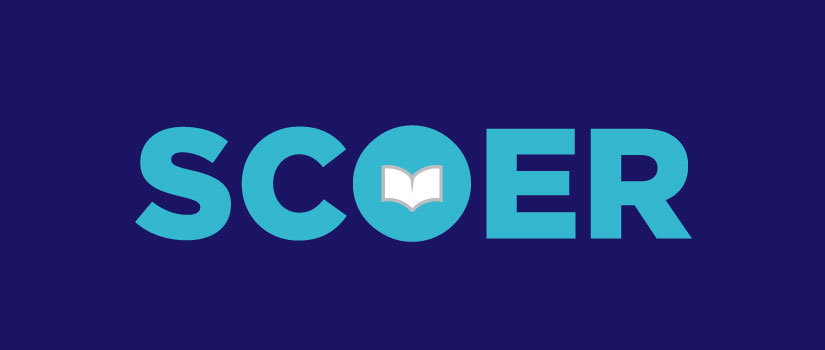Congratulations to the four recipients of this year’s SCoer faculty awards. These instructors will create or incorporate Open Educational Resources (OER) into their classrooms, explore innovative pedagogical practices and save their students money.
The winners are Brett W. Robertson, School of Journalism and Mass Communications, Saskia Coenen Snyder, Department of History, Loren Tharp, Department of Psychology and Yang Wang, College of Education.
To participate in the program, the winning faculty members each attend a one-hour workshop hosted by University Libraries to help them identify or create OER materials for their courses. They commit to switching from the use of a traditional textbook to an OER or library-licensed resource in one of their classes. Each winner receives a certificate and a $500 award.
The SCoer award recipients are selected by UofSC Student Government representatives and University Libraries staff.
“The selection committee looks closely at three determining factors: applicants who showed a strong desire to learn the process of finding and using online educational resources, the potential for long-term financial savings for students, and the availability of OER materials on the subject taught,” says Amie Freeman, Scholarly Communication Librarian. “These winners have shown great enthusiasm for using OER in their courses, and we congratulate them.”
Student body vice president Maia Porzio also offers congratulations to this year’s SCoer winners. “Thanks to your commitment to students beyond what is required, you have ensured students taking your classes will have access to low-cost resources, promoting equity in the classroom,” she says.
Meet this year’s winners:
Brett W. Robertson
Assistant Professor
School of Journalism and Mass Communications
College of Information and Communications
“I’m increasingly concerned about the cost of education for our undergraduate students. Finding creative and novel ways to alleviate barriers for students through the use of OER and zero-cost textbooks is one step I can take. Participating in this program has already broadened my knowledge of the many resources we have through our libraries.”
Saskia Coenen Snyder
Associate Professor of History
Department of History
College of Arts and Sciences
“In a big survey class of 250 students (500 annually), we can save substantial costs every year by switching from hard copy textbooks to OER. Most faculty (myself included) have already started this process, but I feel there's much more to learn about OER than I've given myself time to explore. I'd welcome the opportunity to learn from people who know more about it than me, and I can share that knowledge with my colleagues in the history department, many of whom teach large introductory survey classes.”
Loren Tharp
Instructor
Department of Psychology
College of Arts and Sciences
“I applied for the funds because in my very first semester teaching (spring 2022) face to face, I had two students from one class approach me after class and explain they were not able to purchase the textbook until their next paycheck, and only IF they accrued no other incidental expenses which would prohibit them from paying their rent in full for the month. I went back to my book publisher and shared these student conversations and my rep graciously offered me two access codes so they could access the text free of charge. I remembered as a student of many years, there were semesters wherein purchasing a text was delayed, shared or borrowed. When I saw the opportunity to apply for SCoer, I didn't think twice. This will allow me to rethink the structure of my course and make pedagogical adjustments. I'm excited to have the opportunity to offer a textbook-free course in the fall!”
Yang Wang
Associate Professor
Instruction and Teacher Education
College of Education
“OER is easy to access for students in different locations in the state and even overseas in an online course. I had students from other countries and areas, and it took time to get their textbooks delivered. Also, I want to provide a broader range of digital learning materials to students in this virtual environment. Traditional textbook learning does not suit the needs of diverse learners from different areas. My students are in-service or pre-service teachers. Teachers struggle with their educational expenses with low salaries and high tuition fees. The textbooks are very expensive for many students. Using OER will lower the cost of taking this required course.”
SCoer faculty awards are announced annually. The next award cycle will be spring 2023.
